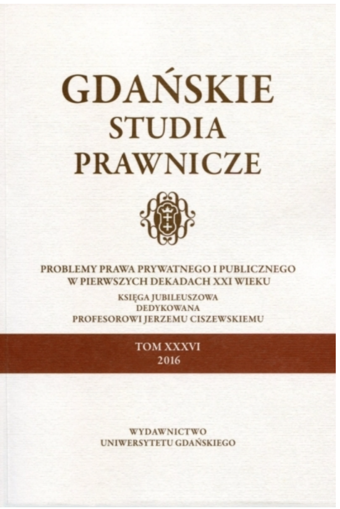Ograniczenia prawa własności w świetle sporu liberalizmu z komunitaryzmem
Ownership Restrictions in the Light of Dispute Liberalism versus Communitarianism
Author(s): Kamil ZeidlerSubject(s): Law, Constitution, Jurisprudence, Civil Law, Law on Economics
Published by: Wydawnictwo Uniwersytetu Gdańskiego
Summary/Abstract: The ownership is the broadest subjective right that allows the owner to use things exclusively. It includes the owner’s rights to possess, use, receive benefits as well as dispose of things. In the countries of the European legal culture the content of this right is very similar due to their common Roman roots. At the same time, the private ownershipis considered to be a natural, basic human right. That is why it cannot be established or granted by a state, but only can be declared and guaranteed by its law. The ownership is also a constitutional value referred to in art. 20, art. 21 and art. 64 of the Polish Constitution. The ownership is not an absolute right, however, it can be limited only by law and only to the extent that does not affect its essence. On one hand, the limits of freedom, including the freedom to use the property, are determined by the rights of others. On the other hand – which is particularly emphasized in the article – the limits of the owner’s rights arise from the need to ensure the common good in a broad sense. It leads to the situationin which both individual and public interests must be protected at the same time. Asa consequence there is a need to weigh two constitutional values in order to give priority to one of them in a particular case, which must be done both at the moment of adopting new law and its application. The above illustrates a difficult problem which is the essence of the dispute between liberalism and communitarianism.
Journal: Gdańskie Studia Prawnicze
- Issue Year: 2016
- Issue No: XXXVI
- Page Range: 535-551
- Page Count: 17
- Language: Polish

